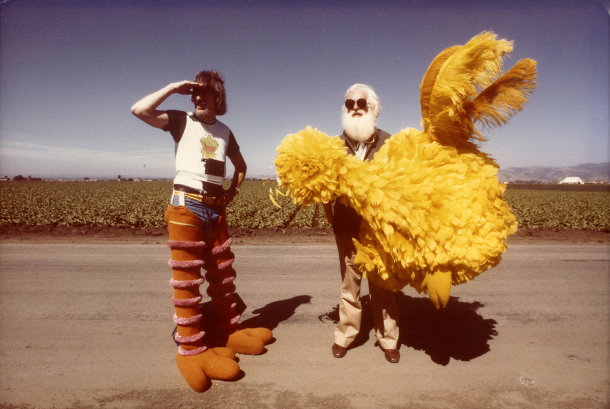Joi Baba Felunath (1979)
Cast: Soumitra Chatterjee, Parinita Banerjee, Haradhan Bannerjee
Director: Satyajit Ray
Country: India
Genre: Family | Adventure | Crime
Official Site: Here
Editor’s Notes: The following review is part of our coverage for TIFF’s The Sun and the Moon: The Films of Satyajit Ray. For more information on upcoming TIFF film series visit http://tiff.net and follow TIFF on Twitter at @TIFF_NET.
Satyajit Ray enters the realm of childhood fantasies with Joi Baba Felunath, crafting a detective story that incorporates elements from Hindi faith with its rich tapestry of supernatural figures that a younger Ray may have found as engrossing as his heroes from comics and pulp novels. Joi Baba Felunath is the second film to feature Ray’s own take on the Sherlock Holmes character, and Soumitra Chatterjee returns to the role of Feluda with a self-assured swagger amplified by his tagalong cohorts as they bumble behind the cool headed genius. While the film carries itself unassumingly with slightly convoluted surface elements that constitute its archetypal whodunit plot, it becomes a meta analysis of the essence of storytelling and cultural heroes that work at capturing the preoccupations of a culture and what drives their shared sense of wonderment.
Satyajit Ray enters the realm of childhood fantasies with Joi Baba Felunath, crafting a detective story that incorporates elements from Hindi faith with its rich tapestry of supernatural figures that a younger Ray may have found as engrossing as his heroes from comics and pulp novels.
While the visual compositions and color pallet are unmistakably Ray, one wonders where a seemingly facile tale of unambiguous villainy and heroism might have arisen given Ray’s complex oeuvre that tackles the social conditions of India and the subtle complexities of the human condition. Despite the unassuming surface simplicity of Joi Baba Felunath, the film is filled with characters obsessed with inconsequential stories of detectives and superheroes, contrivances of popular culture that act as mirrors to the values of a time and place as they animate our collective dreams and amplify our deepest insecurities. The hero of Joi Baba Felunath is of an average height and build, with an easy casual charm, watchful eyes, and a sharp intellect that gives him superb deductive reasoning. Feluda is the hero of our story despite the presence of a mortal superman, bodybuilder Moloy Roy, who has the physique of a Grecian statue but is too preoccupied with taking an inventory of his muscles to be of any use in the investigation.
Joi Baba Felunath takes a few twists and turns that might be at home in any Italian giallo film, but these plot detours are more whimsical than painfully convoluted.
The immaculate sights and sounds also work elevate Joi Baba from mere detective story to a documentation of culture as we watch bathers on the Ganges river or the fastidious painting of eyes onto a religious sculpture. Ray takes us through the alleys and cracked stucco walls of the holy city of Benares, stealing light and shadows from colorful windows that cast green hues across the faces of morally ambiguous characters. His use of diegetic music enraptures our senses as we watch fingers dance deftly across the surfaces of tapas drums while a woman sings with haunting intonation, all within the context of the story in direct contrast to the gratuitous use of music in mainstream Indian cinema.
Joi Baba Felunath takes a few twists and turns that might be at home in any Italian giallo film, but these plot detours are more whimsical than painfully convoluted. Ray’s typical social commentary is relegated to the background, but remains a raging undercurrent as he condemns the greedy thief who would export India’s cultural heritage for financial gain and the fraudulent shaman who trades favors for “enchanted” fish scales on the banks of the river Ganges. Joi Baba gives us a rare glimpse into the preoccupations of Ray’s childhood filtered through the lens of the adult master filmmaker, creating an easily accessible film that reveals deeper truths to those willing to listen.
Joi Baba gives us a rare glimpse into the preoccupations of Ray's childhood filtered through the lens of the adult master filmmaker, creating an easily accessible film that reveals deeper truths to those willing to listen.




